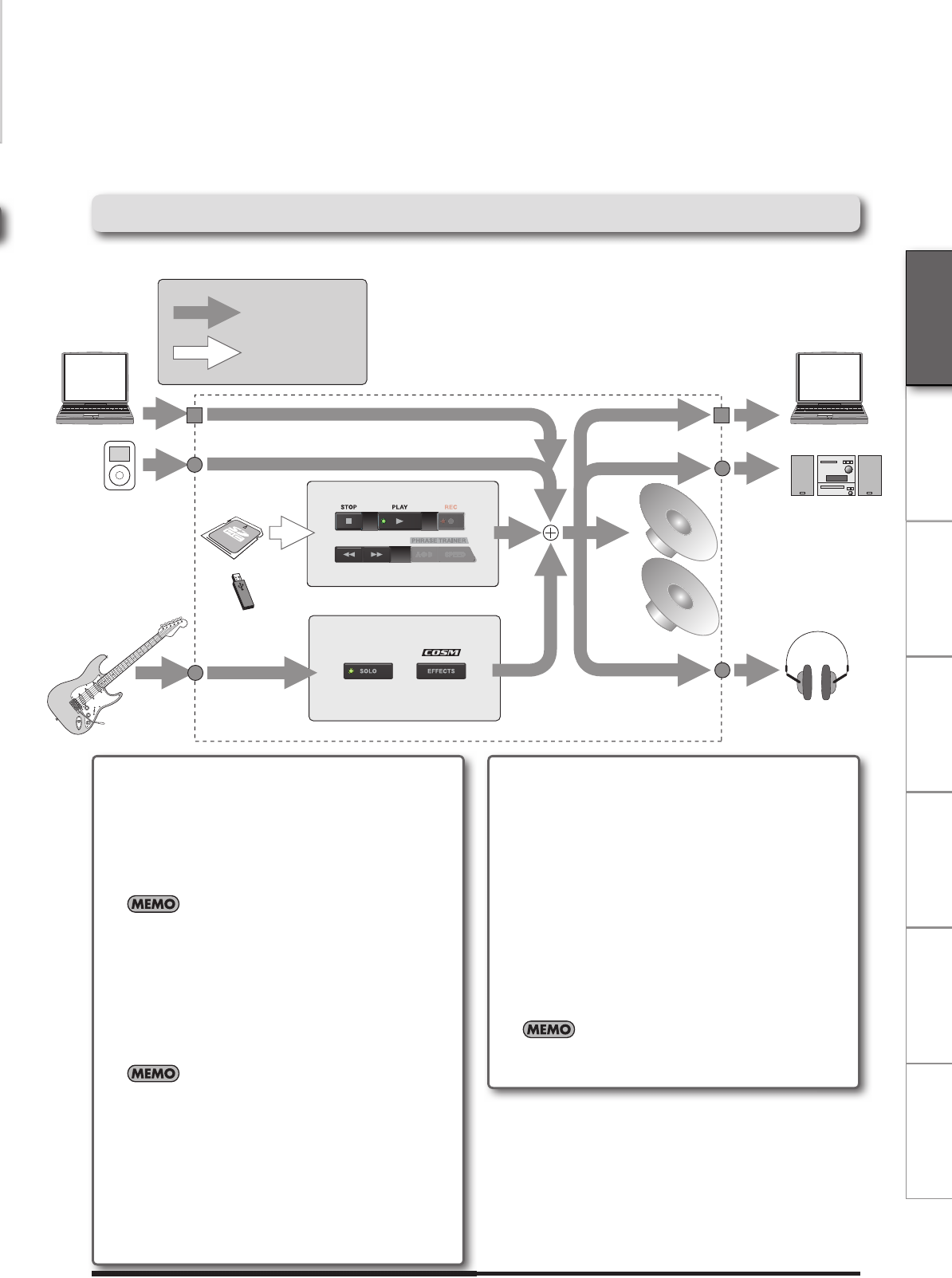
3
Main Features
NederlandsPortuguêsEspañolItalianoFrançaisDeutschEnglish
Basic Structure of the JS-8
Sound Path When Used with Connected Devices
You can use the JS-8 with digital audio players, computers, and other devices to play sounds and more.
Types of Memory Supported by the JS-8
and Their Applications
You can use two kinds of storage with the JS-8, SD cards
and USB memory.
SD (or SDHC) Cards
The JS-8 can record your performances, and can play back
songs from an SD card (JS-8 songs, MP3, or WAV).
• You'll need an SD card in order to record and play back
on the JS-8.
990, 991
• The JS-8 supports SDHC cards.
• Some SD card types or SD cards from some manufac-
turers may not record or play backproperly on the JS-
8.
USB Memory
You can play back MP3 and WAV files stored in USB memo-
ry just as they are and import song data to SD cards.
• Operation of the JS-8 does not require USB memory.
• No USB memory is included with the JS-8. Purchase
USB memory separately.
Memory Con rmed as Functional with
the JS-8
Information on SD cards and USB memory confirmed to
work with the JS-8 can be found on the Roland website.
http://www.roland.com/
Songs Supported by the JS-8
The JS-8 works with songs in the following formats.
JS-8 Songs ( Recording/ Playback)
• Roland/BOSS proprietary compression format
MP3 ( Playback only)
• Sampling Rate: 44.1 kHz
• Bit Rate: 32-320 kbps
WAV ( Playback only)
• Sampling Rate: 44.1 kHz
• Quantization Bit Rate: 8/16/24-bit
• Monaural or Stereo Data
• Uncompressed (Linear)
The JS-8 does not support song formats other than those
described above.
Audio Player Section
Internal Speaker
Eects Section
Song
(MP3 or other format)
Audio Signal
Song
(Audio File)
GUITAR IN
CD Player, Digital Audio Player,
or other equipment
AUX IN
USB
OUTPUT
USB
PHONES
Computer Computer
Stereo, other equipment


















